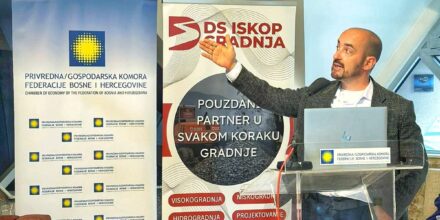The Money Motion Conference kicked off today in Zagreb, with industry leaders discussing the future landscape of payments in Europe. With a lineup of expert panelists and a dynamic moderator, the organizers set the stage for insightful perceptions and forward-thinking perspectives.
The panel, led by Damir Čaušević, Co-Founder of Money Motion and CEO at Monri Payments, featured prominent figures shaping the payments industry:
- Marianne Bregenzer, Country General Manager Nexi Switzerland
- Dejan Donev, Head of Digital at Erste Bank
- Bjorn Wessel, Independent payment consultant, Interim Head of Samsung Pay Germany
- Ludovic Francesconi, Chief Member and Strategy Officer at EPI Company
Instant payments and flexibility in payment methods
The conversation started with Marianne Bregenzer, who emphasized the significance of instant payments in revolutionizing the industry:
“Instant payments make the whole payment process faster and more efficient, and that serves the customers. These added values will change the way we pay and how we will go forward.”
Bjorn Wessel shifted the conversations from consumer-focused into merchant-focused, emphasizing the importance of cost efficiency and flexibility in payment solutions:
“This is especially important in online shops, where customers are aborting carts and ending the purchase process because their preferred payment method is unavailable. It is about creating a compelling user story at the checkout, and merchants need to look at providers that can offer the most flexible payment solutions.”
Exploring the diverse needs of merchants: from coffee shops to retail giants
Dejan Donev reminded the audience that merchant needs vary largely based on the size of the merchant. For large merchants, some payment solutions are unacceptable because transaction speed is one of their primary focuses. Currently, card payments remain the fastest payment option. Donev also highlights the importance of addressing transaction costs in discussions with merchants:
“We always need to talk to the customers about the cost of transaction, the actual processing cost. This cost actually saves employee’s time, decreases fraud risks, and decreases other costs like printing costs, postage, etc.”

Pan-European solutions and European initiatives
Ludovic Francesconi shed light on the European Payments Initiative (EPA), aiming to create a cohesive, pan-European payment solution to address fragmentation in the market. Francesconi also spoke about new regulations for instant payments from the European Commission, which he believes will be positively greeted by the end-users:
“Consumers want more control of their payments and expenses. They want instant payments without the intermediary account, where you cannot control your money. Why do we need cards if we can send money account-to-account? We think the future is in instant payments.”
Damir Čaušević remarked that we are moving from a “supply-driven payment market” to a “demand-driven” future. Speaking of the demand, Čaušević pointed out a local anomaly in payment trends: while BNPL solutions have been on the rise in recent years in the rest of the world, in the Croatian market, they are mostly unknown. Wessel considers this a major obstacle for companies like PayPal or Klarna, especially since the Croatian installment payment option local banks offer is free of charge for end-consumers.
The discussion also touched on the topics of SoftPOS and the regulatory landscape, including insights into PSD3. Marianne Bregenzer shared insights into the growing relevance of cryptocurrency in payment ecosystems. In response to an audience question regarding integration with Apple Wallet, Ludovic Francesconi acknowledged the challenges associated with Apple Pay, citing complexities in the business model.



